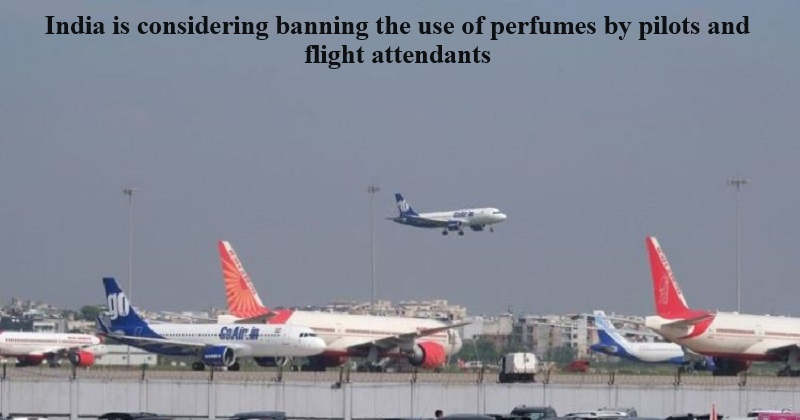
India is contemplating a potential ban on the use of perfumes by pilots and flight attendants. The Office of the Director General of Civil Aviation (DGCA), which oversees the nation’s aviation industry, has recently proposed an amendment to its regulations concerning alcohol consumption, and this proposed ban encompasses substances beyond alcoholic beverages, including perfume.
While the existing guidelines already make mention of non-alcoholic items that could lead to a positive breathalyzer test, such as mouthwash, the proposed update specifically highlights perfume. It states, “No crew member shall consume any drug/formulation or use any substance such as mouthwash/tooth gel/perfume or any such product which has alcoholic content.” The directive goes on to stipulate that crew members undergoing such medication must consult the company doctor before undertaking any flying assignment.
The consideration of banning perfume stems from the fact that many fragrances contain alcohol, which has the potential to trigger false-positive results on a breathalyzer test.
The official air safety regulations for the DGCA were ratified in August 2015, and the proposed addition is currently open for public comments until October 5.
Pilots and cabin crew in India are routinely subjected to pre-flight breathalyzer tests, which are among the strictest alcohol regulations for aircrew worldwide. Even a small trace of alcohol can lead to an instant three-month license suspension, which is regarded as a favorable outcome.
According to an aviation platform monitoring test results, in 2022, 41 Indian pilots and 116 cabin crew members faced temporary license suspensions after testing positive for alcohol.
The proposed ban aims to address the possibility of erroneous positive breathalyzer results and ensure the highest level of aviation safety. By prohibiting the use of items containing alcohol, the DGCA seeks to maintain the stringent sobriety standards essential for pilots and crew members.
Drunkenness among pilots has been a concern affecting the global aviation industry. In 2018, a pilot for Japan Airlines, Katsutoshi Jitsukawa, received a 10-month prison sentence after registering a blood alcohol level nine times the legal limit in a breath test conducted shortly after takeoff. Similarly, in the United States, a Delta pilot named Gabriel Lyle Schroeder was removed from a fully boarded plane before takeoff due to suspicions of alcohol influence.

Post Your Comments